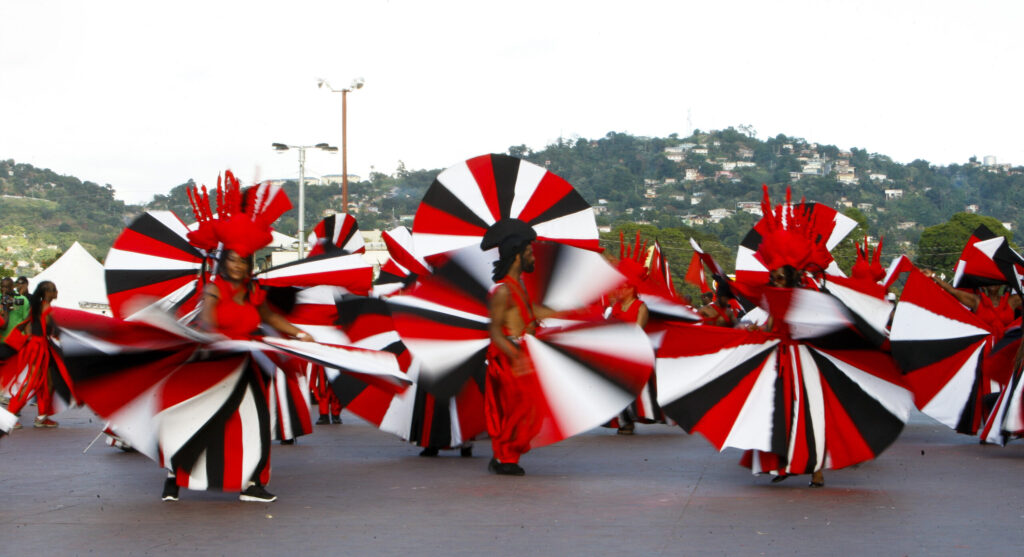
Deadline: 10-Jan-25
The Bureau of Educational and Cultural Affairs has announced its Ambassadors Fund for Cultural Preservation Program to carry out a project to preserve cultural heritage in Trinidad and Tobago.
Contents
Objectives
- The U.S. Ambassadors Fund for Cultural Preservation (AFCP) helps protect historic buildings, archaeological sites, museum collections, and traditional cultural expressions like indigenous languages and crafts around the world.
Funding Information
- Award Floor: U.S. $25,000.00
- Award Ceiling U.S. $500,000.00
- Length of Performance Period: 12 to 60 months
Eligible Activities
- Appropriate project activities may include:
- Anastylosis (reassembling a site from its original parts)
- Conservation (addressing damage or deterioration to an object or site)
- Consolidation (connecting or reconnecting elements of an object or site)
- Documentation (recording in analog or digital format the condition and salient features of an object, site, or tradition)
- Inventory (listing of objects, sites, or traditions by location, feature, age, or other unifying
- characteristic or state)
- Preventive Conservation (addressing conditions that threaten or damage a site, object,
- Collection, or tradition)
- Restoration (replacing missing elements to recreate the original appearance of an object
- Or site, usually appropriate only with fine arts, decorative arts, and historic buildings)
- Stabilization (reducing the physical disturbance of an object or site)
Ineligible Activities
- AFCP does not support the following activities or costs, and applications involving any of the activities or costs below will be deemed ineligible:
- Privately or Commercially Owned Property: Preservation or purchase of privately or commercially owned cultural objects, collections, or real property, including those whose transfer from private or commercial to public ownership is envisioned, planned, or in process but not complete at the time of application.
- Natural Heritage: Preservation of natural heritage (physical, biological, and geological formations, paleontological collections, habitats of threatened species of animals and plants, fossils, etc.) unless the natural heritage has a cultural heritage connection or dimension.
- Human Remains: Preservation of hominid or human remains.
- News Media: Preservation of news media (newspapers, newsreels, radio and TV programs, etc.).
- Published Materials: Preservation of published materials available elsewhere (books, periodicals, etc.).
- Mandated Educational Materials: Development of curricula or educational materials for required classroom use.
- Archaeological Research: Archaeological excavations or exploratory surveys for research purposes.
- Historical Research: Historical research, except in cases where the research is justifiable and integral to the success of the proposed project.
- New Exhibits or Collections: Acquisition or creation of new exhibits, objects, or collections for new or existing museums.
- New Construction: Construction of new buildings, building additions, or permanent coverings (over archaeological sites, for example).
- New Works of Art: Commissions of new works of art or architecture for commemorative or economic development purposes.
- New or Modern Adaptations: Creation of new or modern adaptation of existing traditional dances, songs, chants, musical compositions, plays, or other performances.
- Conjectural Reconstructions: Creation of conjectural reconstructions of cultural objects or sites that no longer exist.
- Relocation: Relocation of cultural sites from one physical location to another unless under imminent threat of irreversible damage or destruction.
- Removal: Removal of cultural objects or elements of cultural sites from the country for any reason.
- Digitization: Digitization of cultural objects or collections, unless part of a clearly defined conservation, documentation, or PD effort.
- Conservation Plans or Studies: Conservation plans or other studies, unless they are one component of a larger project to implement the results of those studies.
- Cash Reserves or Endowments: Cash reserves, endowments, or revolving funds (funds must be expended within the award period [up to five years] and may not be used to create an endowment or revolving fund).
- Fund-Raising Campaigns: Costs of fund-raising campaigns.
- Contingency Costs: Contingency, unforeseen, or miscellaneous costs.
- Pre-Award Costs: Costs of work performed prior to the announcement of the award unless allowable per 2 CFR 200.458 and approved by the Grants Officer.
- International Travel: International travel outside the project country, except in cases where travel is justifiable and integral to the success of the proposed project or to provide project leaders with learning and exchange opportunities with cultural heritage experts.
- Project Cost Limits: Individual projects which cost less than US $25,000 or more than $500,000.
- Independent U.S. Projects: Independent U.S. projects overseas.
Eligibility Criteria
- The following entities are eligible to apply:
- Foreign Institution of Higher Education
- Foreign-based non-profit organizations/nongovernment organizations (NGO)
- Foreign Public Entity, where permitted
- Public International Organizations and Governmental Institutions
- U.S. Non-Profit Organization (IRC section 501(c)(3)) of the tax code (with partnerships that develop the capacity of similar Trinidadian and Tobagonian institutions and include plans to transfer programs to sustainable local management) may apply.
- U.S. Institution of Higher Education
For more information, visit Bureau of Educational and Cultural Affairs.




